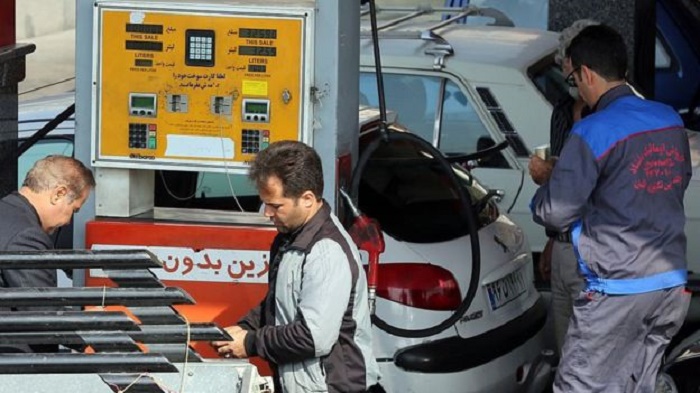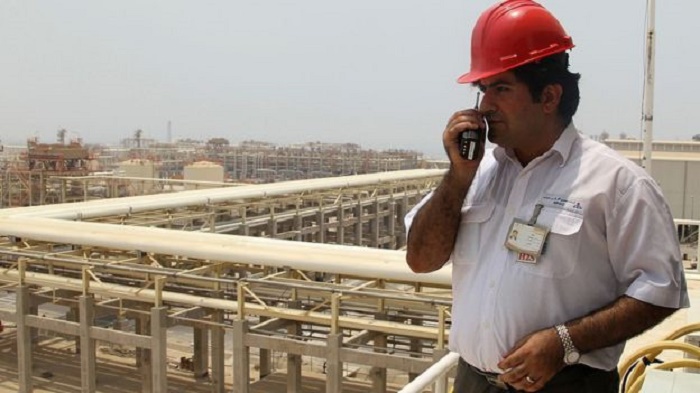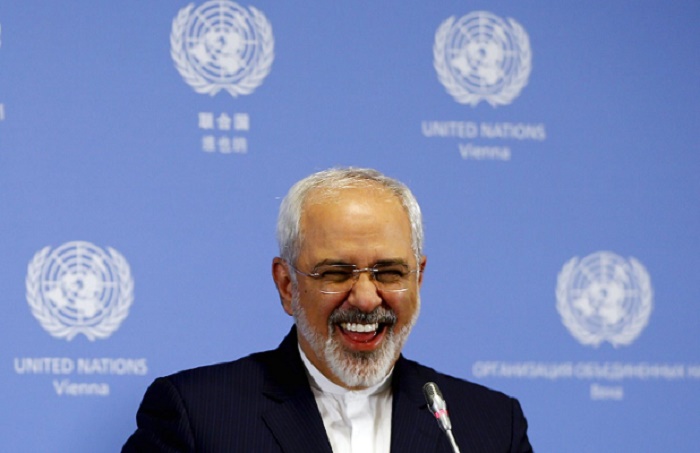The European Union terminates all its nuclear-related economic sanctions including an embargo on buying Iranian crude oil, but more importantly, ends restrictions on Iranian trade, shipping and insurance.
"This is a day we were awaiting for years. There will be big changes," says Michael Tockuss, managing director of the
German-Iranian chamber of commerce.
"We will also get some 300 Iranian individuals and companies off the (EU) sanctions list. Up to now, we couldn`t do a
single business transaction with them, not even selling bread or biscuits."
Some sanctions remain
Besides removing sanctions on entire sectors such as banking or insurance, Iranian entities or individuals who were blacklisted because of their alleged nuclear-related activities can now do business with the EU.
However, those on the terrorism sanctions list, will still be excluded.

The United States will no longer apply its crippling sanctions on Iran`s economy, especially on the banking sector.
A full annulment of those restrictions would in some cases require approval by the Republican-dominated US Congress - which is why President Obama opted for issuing "waiver orders" for these sanctions.
The US, too, keeps sanctions on entities accused of sponsoring terrorism such as Iran`s Revolutionary Guards or those allegedly linked to it.
Previous UN Security Council resolutions that imposed sanctions on Iran`s nuclear programme will be annulled.
Though the economic impact of these has been small in scope, compared with US or EU sanctions, those of the UN lent legitimacy to restrictive actions by others.
What it means for Iran

- At current prices, the lifting of energy sanctions means Iran could increase its revenue from oil exports by $10bn (£6.9bn) by next year
- Iran`s central bank says lifting banking sanctions will allow $30bn of foreign reserves currently frozen in accounts around the world to be brought back - the US Treasury says the figure is $50bn
- With sanctions gone Iran could boost its GDP growth to around 5% in 2016-17, from almost zero currently, says the International Monetary Fund
- Sanctions have added 15% to the cost of trading with Iran and lifting them will save the country some $15bn yearly in cheaper trade, says Iran`s first Vice-President Eshaq Jahangiri
Cheaper oil
With the lifting of sanctions Iran will be able to export as much crude oil to the world as it can, or as much as it can find demand for.
Before imposing an oil embargo on Iran in 2012, one in every five barrels of Iranian crude went to European refineries.
Iran has been selling just over one million barrels a day for the past few years, mostly to China, India, Japan and South Korea.
Tehran says it will hike sales by 500,000 barrels the day after sanctions are lifted and increase total exports to around 2.5 million barrels within the next year.
This will push the price only one direction: downwards. The market is already flooded by cheap oil and there will be many more barrels in the market than there are buyers.
In order to win back its customers, Iran plans to offer discounts on prices that are already the lowest in 11 years.
Iran`s full return to the market could trigger a price war with its arch-rival Saudi Arabia, which is trying to keep its own market share by selling under the market price.
Big banks
But the biggest bottleneck in future business with Iran could be banks. Although Iran will be again connected to the global financial system it is unclear how many banks will re-engage in Iranian business.
"When I speak to our big German banks, they say wait until `implementation day` then another 12 months, then you might be able to speak to us again about doing business with Iran," says Mr Tockuss.

US financial and judicial authorities have slapped hefty penalties on two dozen European banks for bypassing US sanctions on Iran, Sudan and Cuba.
Over the last 10 years, banks have paid $14bn in fines or out-of-court settlements - French bank BNP Paribas`s bill alone amounted to $9bn.
"A number of UK banks have given commitments to US regulators not to increase their Iran exposure," says Justine Walker, director of financial crime at the British Bankers` Association.
Both German and British business leaders say they have asked the US Treasury to give a "green light" to banks, so that financial institutions are confident in handling Iran-related requests by their European clients.
"If we can`t convince any big banks to provide us with big amounts, we have to look for a large number of smaller banks," says Mr Tockuss, whose chamber members managed to keep doing business with Iran, thanks to small German banks with no exposure to the US market.
But such "micro-financing" could prove inadequate for large-scale projects like the overhaul of Iran`s railway system by engineering firm Siemens, or the purchase of large passenger aircraft from Airbus.
Grey area
If practical complexities were not enough, there are also legal ones too. The US is lifting its so-called "secondary sanctions" - the ones that apply to non-US individuals or companies, but US "primary sanctions" will still ban US nationals and companies from engaging in business with Iran.
"There are big grey areas: what about non-US subsidiaries of US companies?" says sanctions expert Maya Lester, a barrister at London`s Brick Court Chambers.

The text of the nuclear deal says business with Iran will be permissible for subsidiaries of US companies but that contradicts with US primary sanctions.
Many companies and their lawyers are waiting for detailed guidelines by the US Treasury`s financial and asset control office (OFAC) before doing business with Iran.
But the legal complications are not solely on the western side. It may seem straightforward to export cosmetics to Iran`s hungry market but navigating the country`s legal and regulatory regime is like walking in a minefield.
Corruption is an epidemic, says Ahmad Tavakoli, a prominent Iranian conservative member of parliament.
Sometimes obtaining import permits could be a headache without "extra payments", while some businesses, such as those in the UK must observe Britain`s bribery act.
"There might be joy for now, but there will also be surprises and disappointments," says one managing director of a Tehran-based engineering procurement firm.
"Many will understand that sanctions were only part of the problem."
















































